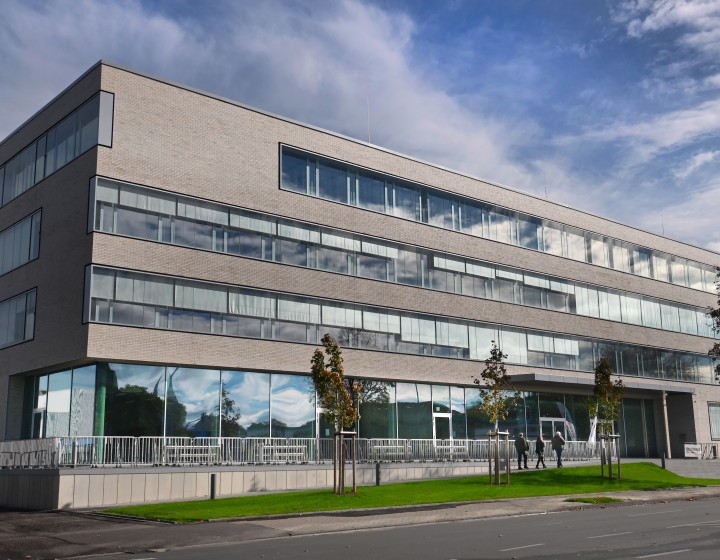
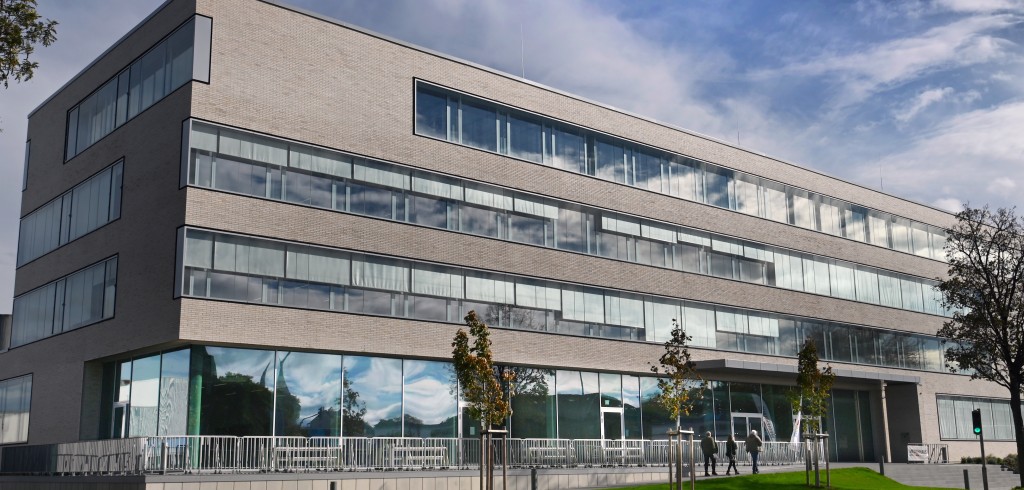

History
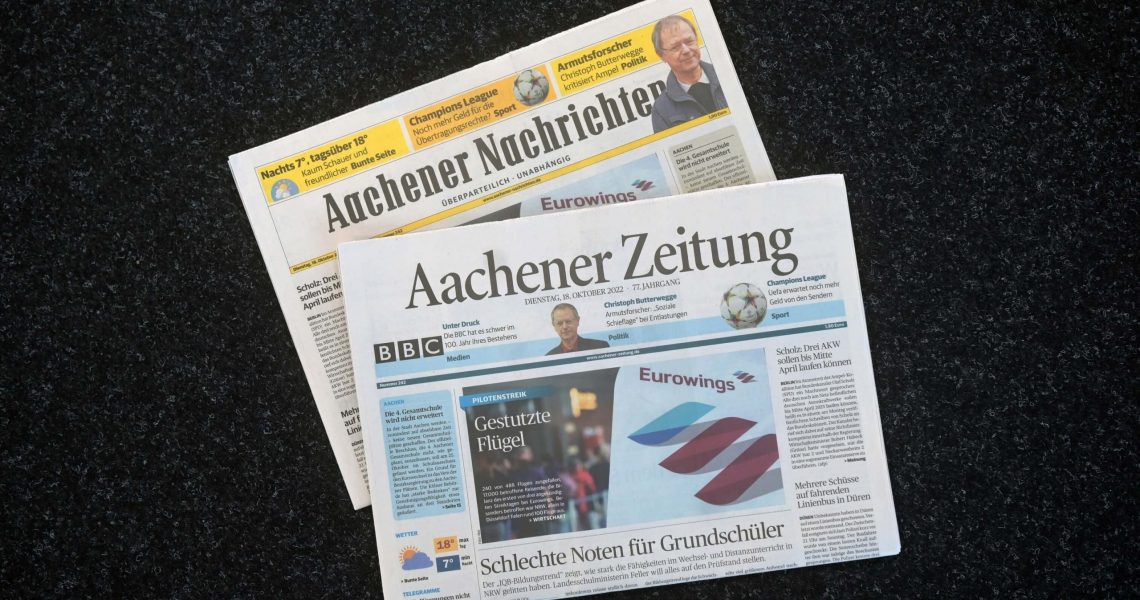
First German post-war newspaper with licence number 1
Already during the last months of the war, after the invasion of Aachen by Allied troops, the first newspaper no longer controlled by the National Socialists is published: the Aachener Nachrichten. With the first issue of 24 January 1945, the military government hopes that “the Aachener Nachrichten” will be the beginning of the reconstruction of a free German press”. American press officers initially control the content of the paper, but just a few weeks after the end of the war, on 27 June 1945, the Aachener Nachrichten passes into German hands with licence no. 1. The first official edition of the Aachener Volkszeitung is published on 6 March 1946. The British military government grants the founders (from left to right) Dr Josef Hofmann, Dr Albert Maas, Jakob Schmitz and Johannes Ernst licence no. 8 after the Second World War.
The first official edition of the Aachener Volkszeitung
The first official edition of the Aachener Volkszeitung is published on 6 March 1946. The newspaper is published twice a week with a limited circulation of 53,000 copies by the military government, which increases to 99,600 copies by the end of the year. The British military government grants the founders Johannes Ernst, Jakob Schmitz, Dr Albert Maas and Dr Josef Hofmann licence no. 8 after the Second World War.
Purchase of the property at Theaterstrasse 70-74 and Horngasse 1-1a
The ruined property in Theaterstrasse is purchased in order to prepare for the expected daily publication of the newspaper in 1949. The Aachener Volkszeitung had previously started production in makeshift rooms in the Geka building on Adalbertstraße, as the only former newspaper building that had survived the war had been confiscated for the Aachener Nachrichten.
The Volkszeitung is published daily for the first time
From September 1, 1949, the Aachener Volkszeitung is published daily for the first time. Ten newspapers are published in the circulation area: Bote an der Inde, Stolberger Volkszeitung, Geilenkirchener Volkszeitung, Heinsberger Volkszeitung, Jülicher Volkszeitung, Erkelenzer Volkszeitung, Dürener Volkszeitung, Eifeler Volkszeitung and the Aachener Volkszeitung (Eifel edition).

Completion of the Theaterstrasse publishing building
On March 8, the new publishing building of the Aachener Volkszeitung is inaugurated. The Aachener Volkszeitung is produced entirely on the former bombed-out site until 1977. The Aachener Volkszeitung building was the first new building to be built in Aachen after the war.
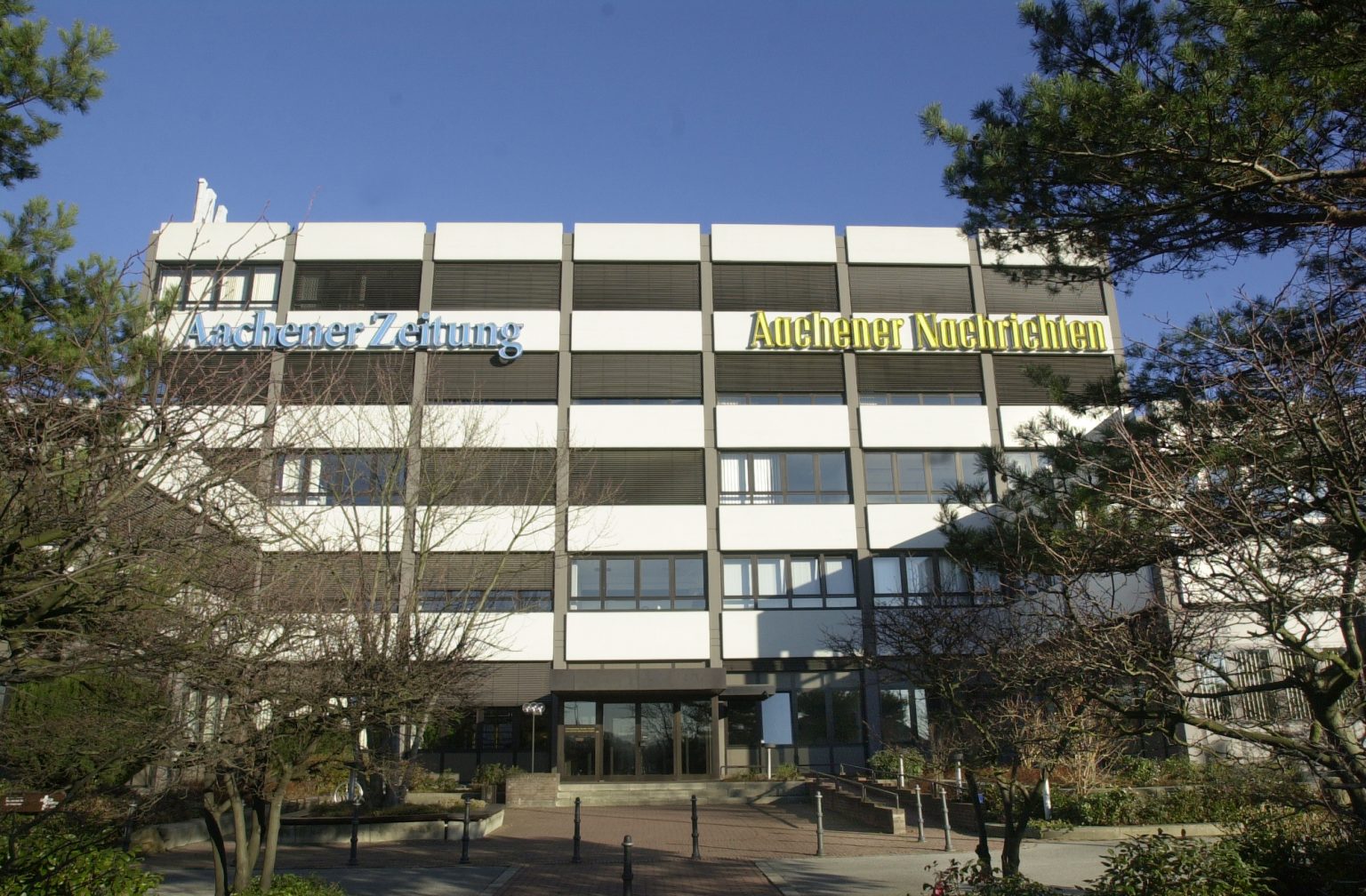
The “Aachen model”
In January, the two newspapers Aachener Volkszeitung and Aachener Nachrichten are brought together under one roof for the first time. The editorial offices of the two daily newspapers remain independent of each other, but the advertising business and administration are merged and the technical facilities and sales organizations are shared. In May, Zeitungsverlag Aachen GmbH is founded.
Move to the new publishing building in Dresdener Straße
Four years after the start of construction, Aachener Volkszeitung and Aachener Nachrichten are able to move into the new publishing building in Dresdener Straße. Although the entire production facility is relocated from Theaterstrasse to Dresdener Strasse, both daily newspapers are published. The typesetting machines are transported to their new location at night and connected up. In order to ensure the punctual publication of the daily newspapers, the rotary press has to be dismantled in sections and reassembled on site.
Advertising papers
After the emergence of advertising journals at the beginning of the 1970s created competition for the daily newspapers in the newspaper publishing house’s sales area, the publishing house decided to publish its own advertising journals in Heinsberg, Erkelenz, Jülich, Düren, Eschweiler, Stolberg, Würselen, Alsdorf and Baesweiler. At the end of the year, the “Aachener Woche” is established as a joint venture with the Weiss company. Today, the advertising papers are known as “Super Mittwoch” and “Super Sonntag” (as of 2020: “Super Sonntag” was renamed “Zeitung am Sonntag”).
The era of offset printing begins: New rotary press
On April 11, 1989, the first section of the COMMANDER 60 is started up. The offset web press, which consists of six printing units, three folders and six reelstands, can produce up to 90,000 newspapers of 32 pages per hour (16 pages in 2-color and 16 pages in 4-color). Three different local editions can be printed simultaneously on the three towers.
The local station “Radio Aachen”
On September 20, 1991, the State Broadcasting Authority awards a license for the local radio station “Radio Aachen”, in whose operating company the Aachen newspaper publisher is involved. In February 1992, the station goes on air for the first time with a live event in the Coronation Hall of Aachen Town Hall.
The Aachener Volkszeitung becomes the Aachener Zeitung
On the occasion of the 50th anniversary of the Aachener Volkszeitung, it changes its name to “Aachener Zeitung” on March 6, 1996. The titles of the local editions are also changed. Only the title of the then existing Erkelenzer Volkszeitung is retained for copyright reasons.
The Rheinische Post publishing house joins the Aachener Nachrichten publishing company
The publication of an independent and non-partisan daily newspaper with a liberal attitude is continued even after RBVG (Verlag der Rheinischen Post) joined the publishing company of the Nachrichten in 1996.
Launch of the online presence
In April, Aachener Zeitung and Aachener Nachrichten go online with the websites az-web.de and an-online.de (today: aachener-zeitung.de and aachener-nachrichten.de). Readers can follow the latest news about local and national events on the websites.
Introduction of the e-paper
The usual newspaper has also been available to readers as a digital version since this year. This means that the archive can also be used online.
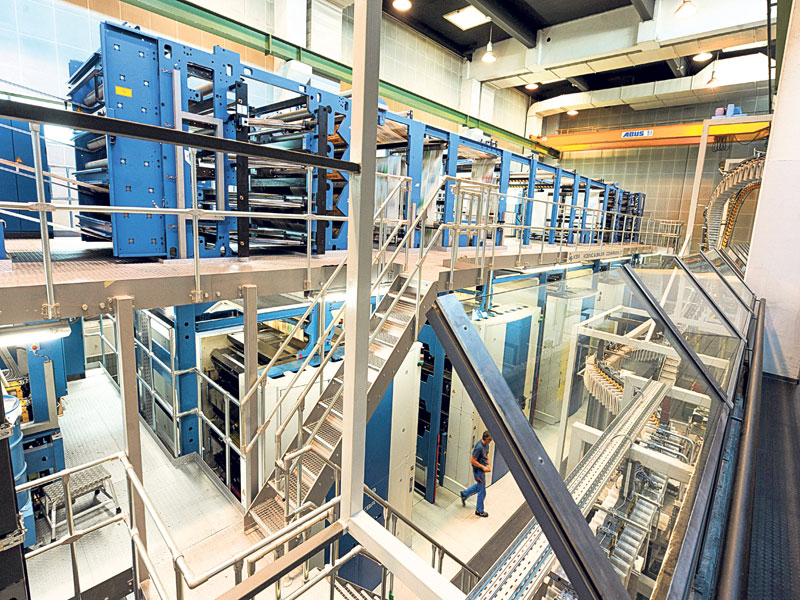
The new Commander CT rotary machine
From zero to 46 km/h in just 90 seconds. The web press from Würzburg-based Koenig & Bauer is put into operation. It enables faster and high-quality production of the local editions of Aachener Zeitung and Aachener Nachrichten.
New training model for young journalists
Medienhaus Aachen is equipping young journalists for the future with its new multimedia training program for trainees, which lasts a total of two and a half years.
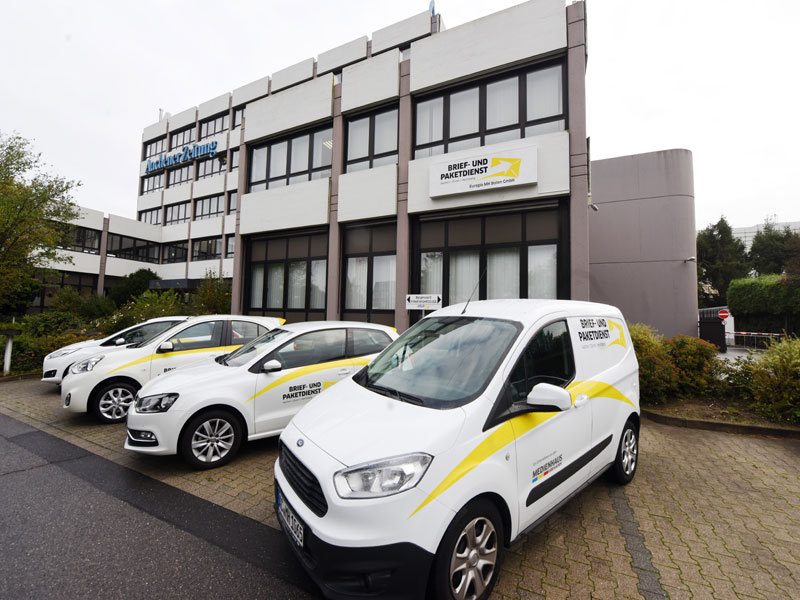
Euregio MH Boten
The media company is once again involved in mail delivery and has founded a wholly-owned subsidiary, which takes over the operation of the Aachen-Düren-Heinsberg letter and parcel service a few weeks later.
EUREGIO fairs
Zeitungsverlag Aachen GmbH acquires EUREGIO Messen GmbH from entrepreneur Norbert Hermanns. The media company is thus expanding its business area and is now also focusing on organizing trade fairs and events in the region.
print'n'press Verlag
On October 1, 2017, print’n’press Verlag GmbH will become a wholly owned subsidiary of Zeitungsverlag Aachen GmbH. With print’n’press Verlag, the city magazine Klenkes, Klenkes Neo, the Euregio guides, various event formats and the ticket store in Kapuziner Karree, among others, are transferred to ZVA.
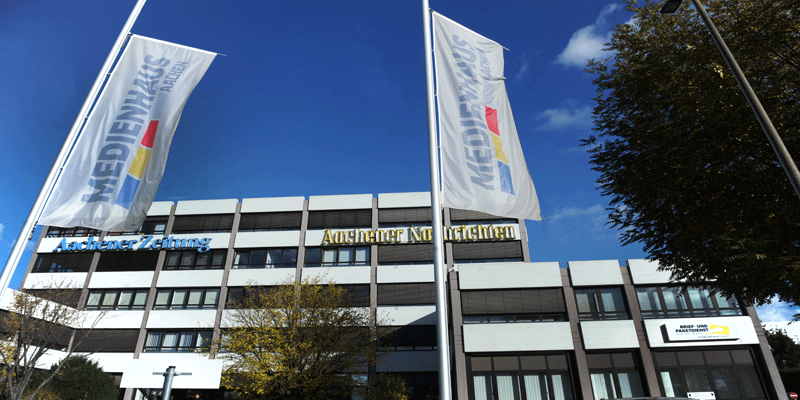
Zeitungsverlag becomes Medienhaus
After more than forty years as Zeitungsverlag Aachen GmbH, the regional media company is shedding its name and will operate under the name Medienhaus Aachen GmbH in future. “With this renaming, we want to make it clear to the outside world that we have products and services that go beyond newspapers,” says Managing Director of Medienhaus Aachen GmbH Andreas Müller.
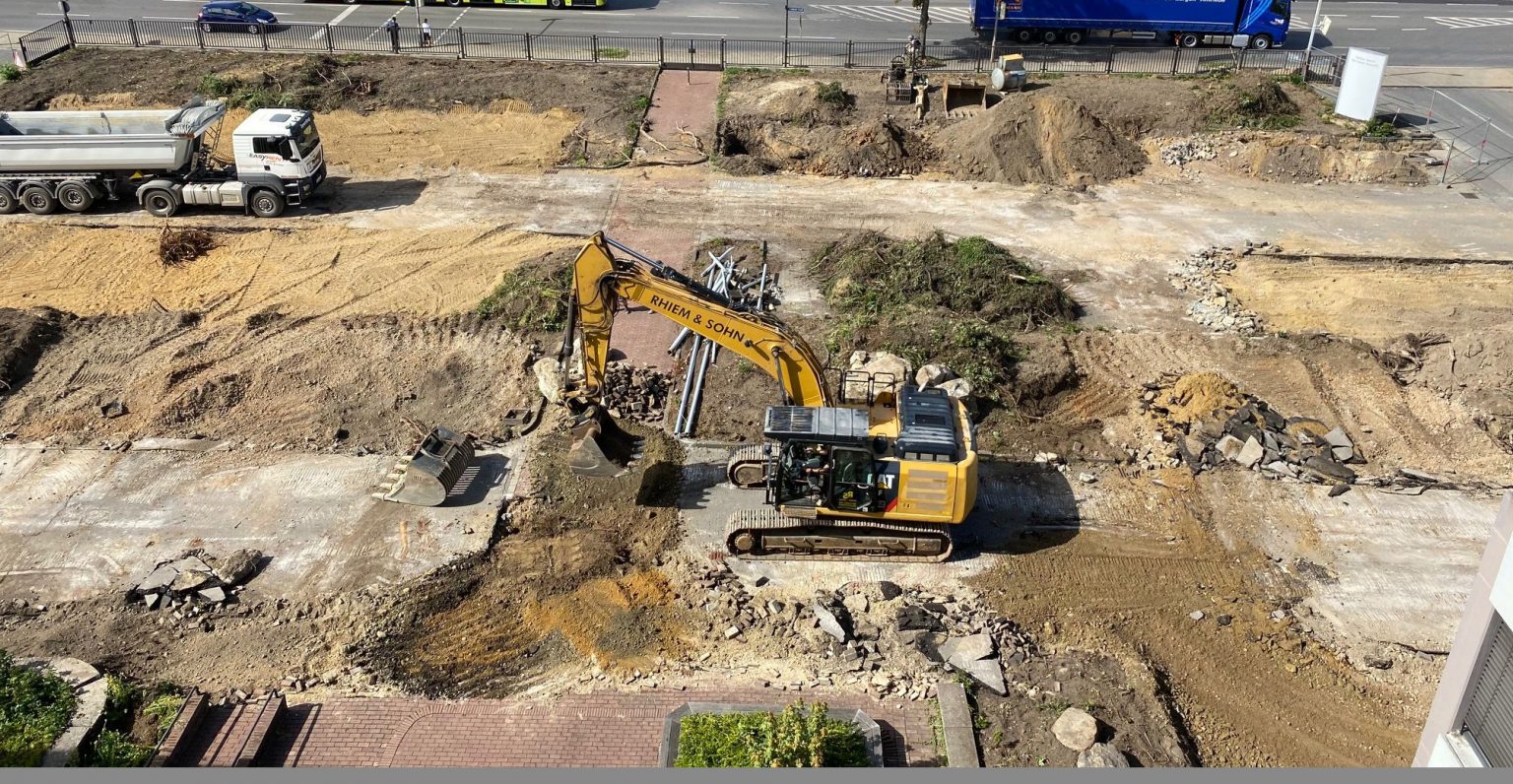
Construction of new media house campus begins
Since the beginning of September 2020, the former parking lot in front of the publishing building has been cleared, grubbed and excavated. Mountains of rubble, soil and roots have already been removed. The construction of the new publishing building on Dresdener Straße has picked up speed. Medienhaus Managing Director Andreas Müller says: “The new building is an important statement for us – especially in these times. It shows that we are positioned for the future. The idea of the Medienhaus is being implemented visibly and tangibly.” The new Medienhaus campus is expected to be completed in less than two years.
Takeover by Mediahuis
At the beginning of the year, the Mediahuis Group acquires the majority of shares in Aachener Verlagsgesellschaft (AVG). The Mediahuis Group, which operates successfully in Belgium, the Netherlands, Ireland and Luxembourg, bought the AVG shares from the Ernst, Hofmann and Maas families, who founded the “Aachener Zeitung” (then “Aachener Volkszeitung”) after the Second World War. Today, the Mediahuis Group includes national media brands such as “De Standaard” (Brussels) as well as “De Telegraaf” and “NRC” (both Amsterdam), but also regional media such as “De Limburger” (Sittard/Dutch Limburg) or “Het Belang van Limburg” (Hasselt/Belgian Limburg). “De Limburger” and ‘Het Belang van Limburg’ are published in the immediate vicinity of ‘Aachener Zeitung’ and ‘Aachener Nachrichten’.
Exit of the Rheinische Post publishing house from Medienhaus Aachen GmbH
At the beginning of the year, the Mediahuis Group acquired the remaining 30% of shares in the German publishing house Medienhaus Aachen GmbH. At the beginning of 2022, Mediahuis still held a 70% stake, while Rheinische Post Mediengruppe held the remaining 30%. With the sale of its 30% stake, the Aachener Zeitung publishing house is now fully owned by the Mediahuis Group.